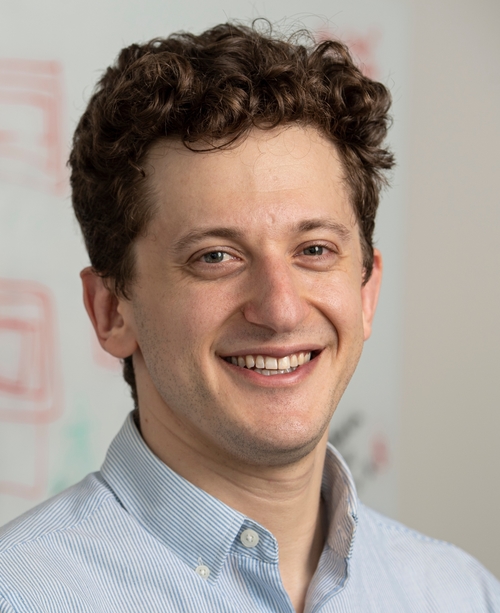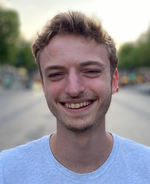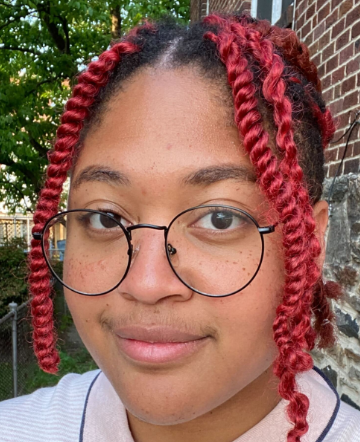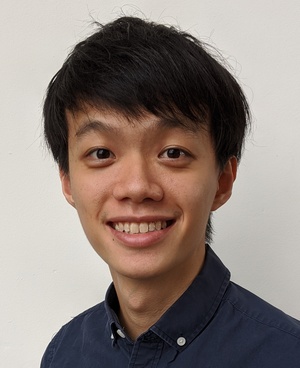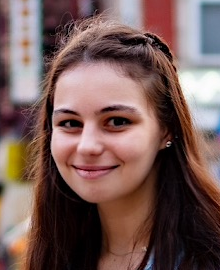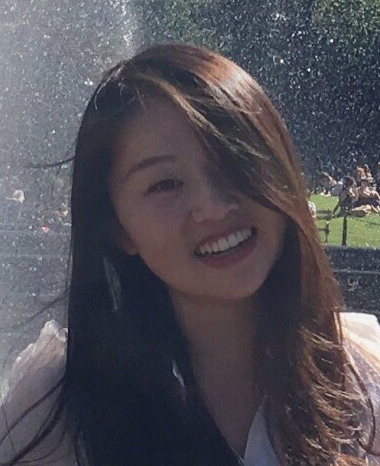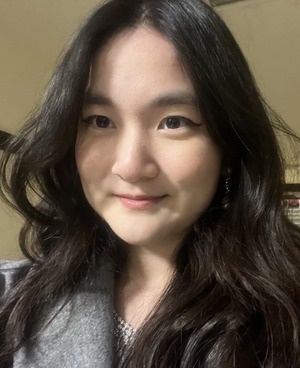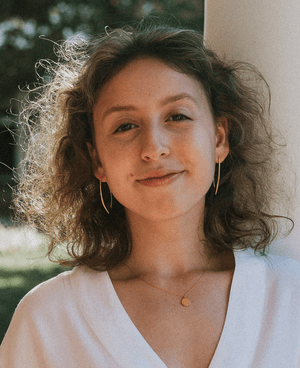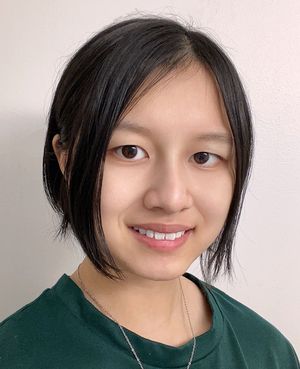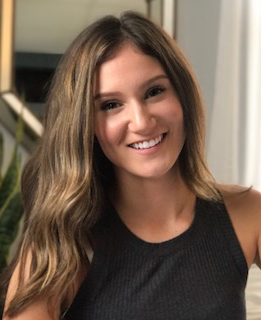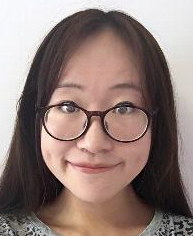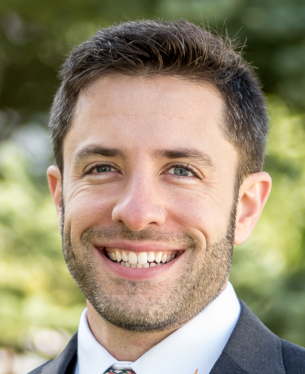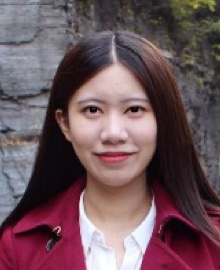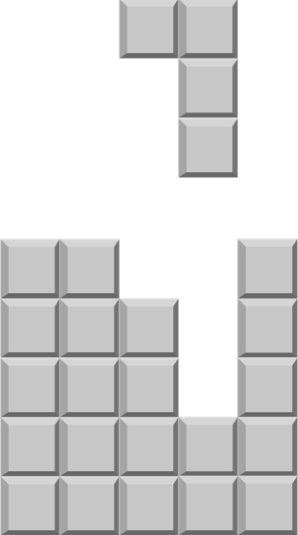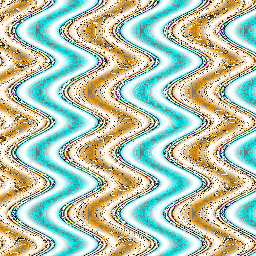
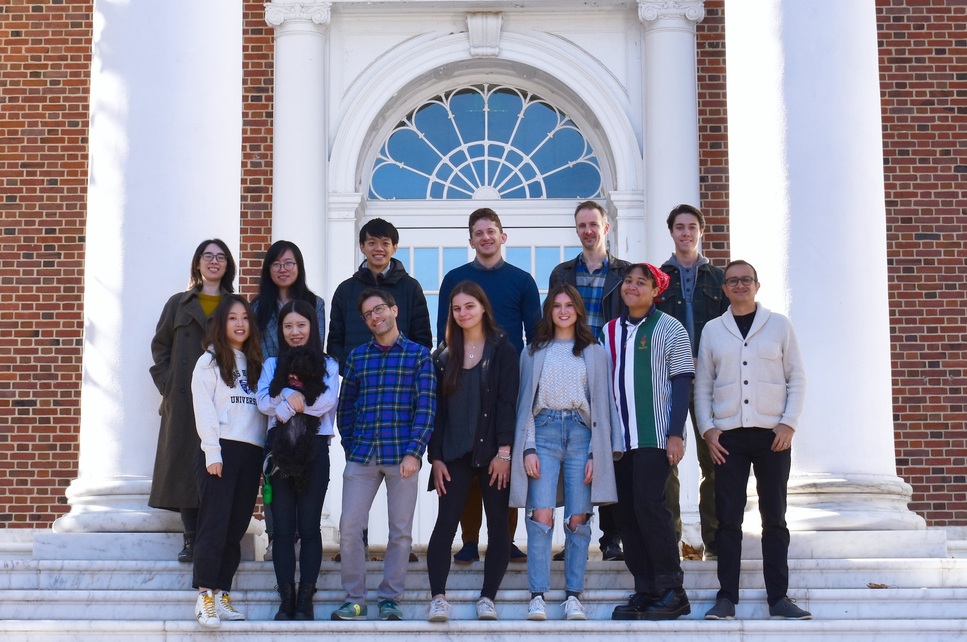
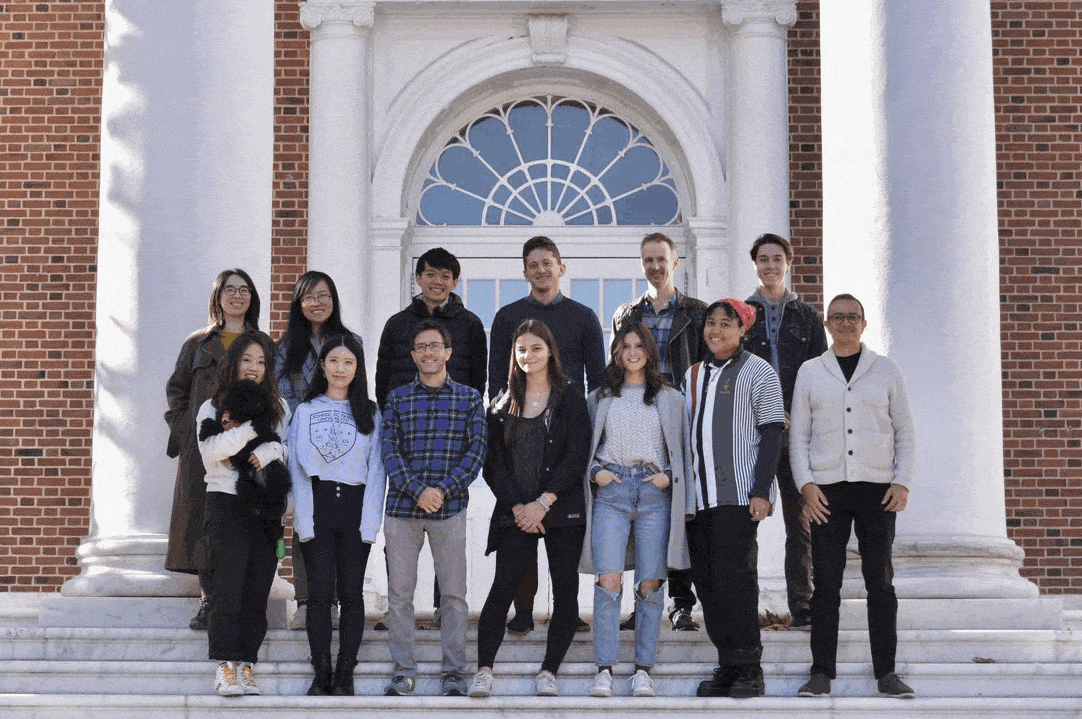
News
- Congratulations to graduate student Sholei Croom, who has won JHU's Scholar-Teacher Award! This award will fund Sholei's final semester as a graduate student, and it will also support Sholei as an instructor of their very own course. This also means we don't have to say goodbye to Sholei quite yet; lucky us! (January 2025)
- Chaz was honored to accept some awards on behalf of the lab! These include the American Psychological Foundation's Gittler Award, for "scholarly contributions to the philosophical foundations of psychological knowledge"; the American Psychological Association's Distinguished Scientific Award for Early Career Contribution to Psychology, in the area of "perception and motor performance"; and the Assocation for Psychological Science's Janet Taylor Spence Award for Transformative Early Career Contributions. We are grateful to have the lab's work recognized in this way, and we look forward to what's next! (January 2025)
- The social media team here at Hopkins produced a fun little video about Chaz's Intro Psych class! (October 2024)
- Lab alum Zekun Sun, now a postdoctoral fellow at Yale, appeared on APS's Under the Cortex podcast to discuss her new work on shape caricatures! Listen here. (September 2024)
- Congratulations to multiple lab members whose work was recognized at the 2024 meeting of the Society for Philosophy and Psychology! Current graduate student Tal Boger was awarded the William James Prize; this prize goes to the best project contributed by a graduate student, and it was awarded to Tal for his work on the "psychophysics of style". And former RA Nathaniel Braswell was awarded the poster prize for his work on "logic without language", which won a popular vote open to all conference attendees. Congrats to Tal and Nathaniel! (June 2024)
- The lab is ready for VSS! You can take a look at our presentations at perception.jhu.edu/vss. And don't forget to check out phiVis, our satellite meeting on the Philosophy of Vision (which this year features our very own Ian Phillips!). Update: We had a great time! phiVis was fun too. (May 2024)
- Congratulations to graduate student Makaela Nartker, who successfully defended her dissertation, "What do the inattentionally blind see? A signal detection approach to visual awareness"! Makaela won just about every department award we have here at JHU, and managed to run more subjects in a single paper (25,000+) than every other graduate student in the department put together. Makaela moves on to a very exciting position at the University of Texas at Austin, where she'll be a Data Scientist in their Data to Insights team. Congratulations Makaela! (March 2024)
- Chaz appeared on the Many Minds podcast (hosted by Kensy Cooperrider) to talk about perception, cognition, and connections to philosophy. Have a listen here! (March 2024)
- Chaz's mom broke some exciting news! (January 2024)
- Just in time for this festive season, our new work on
epistemic action understandingshaking your holiday gifts has arrived! You can read more about this project on The Hub, which also produced a holiday-themed version of their story featuring one of our lab mascots (who has now made his first television appearance). Finally, this work has gotten our lab into an online battle with Jeff Bezos; stay tuned for the results. (December 2023) - There's some exciting media surrounding our newest work — led by lab graduate student Rui Zhe Goh, in collaboration with Ian Phillips — on the perception of silence! Highlights include original stories in The New York Times, Science, and Scientific American. There is also an article and multimedia package on JHU's Hub, which was picked up by other leading news outlets. You can also hear each of the authors of the study discussing the work on different podcasts and radio platforms, including Rui Zhe on BBC's "Naked Scientsts", Ian on RTE Radio 1's Ray D'Arcy Show, Chaz on the Sound Expertise podcast — and all three of us together on PNAS's own Science Sessions. Congratulations to Rui Zhe for leading such a successful interdiscplinary project! (July 2023)
- It is with great joy that the lab welcomes its newest junior member! (May 2023)
- The lab is thrilled to have received a Catalyst Award from the School of Arts and Sciences! The award will support an ongoing project on visual awareness, spearheaded by lab graduate student Makaela Nartker. (May 2023)
- Tal Boger — lab RA, incoming graduate student, and resident mental ice-melter — has been awarded a graduate fellowship from the National Science Foundation! Congratulations Tal on this well-deserved honor. You can learn more about Tal and his work here. (April 2022)
- Congratulations to lab graduate student Zekun Sun, who has successfully defended her dissertation, "Cognitive consequences of visual complexity"! Zekun leaves Johns Hopkins with a cabinet full of awards, including Best Talk at OPAM, multiple travel awards from VSS, and several internal awards here at JHU PBS, including the Waldrop Junior Investigator's Award (for a psychology graduate student who demonstrates exceptional scholarly promise), and the Mary Ainsworth Award (for an oustanding female graduate student). Next up for Zekun is a postdoctoral fellowship at Yale, in the lab of Sam McDougle. We can't wait to see where Zekun's research goes next! (March 2023)
- The lab has bid farewell to postdoc Nicolò Cesana-Arlotti, who will start his own lab at Yale in July 2023! Chaz wasn't sure how best to toast Nico on the occasion of his departure, so he asked ChatGPT for help. (January 2023)
- Here's a first: Chaz shared some of the lab's work with the Los Angeles Dodgers performance science team! Little did they know he was wearing his Toronto Blue Jays jersey under his sweater… (January 2023)
- Congratulations to former graduate student Chenxiao Guan, who has been awarded a special postdoctoral fellowship from Zhejiang University! Chenxiao will be a supported by ZJU's High-Level Talent Cultivation Program (浙江大学高层次人才培育支持专项计划), and will join the labs of Mowei Shen and Hui Chen. We can't wait to hear about Chenxiao's work with her new colleagues. (November 2022)
- Chaz was honored to represent the lab at this year's meeting of the Society for Philosophy and Psychology, where he gave the annual Stanton Prize address! The talk reviewed our group's work at the intersection of vision science and the philosophy of perception, which continues to be a core theme here in the lab. Chaz was very worried about questions from sharp and intimidating philosophers, so he brought his own imposing Q&A hypeman with him to patrol the stage and shout down hecklers. (July 2022)
- Our work on perspectival appearance (led by former lab postdoc Jorge Morales) is heating up! A critical discussion, authored by Johannes Burge and Tyler Burge, appears here. There are two replies to it: One from our group (available here), and another from an independent group of philosophers and psychologists (available here). You can also see (and even participate in) a parallel conversation on social media, through threads shared by both Johannes and Jorge. Another online discussion can be found at the Brains blog, which hosted a symposium on this project featuring a number of prominent scholars working on this topic. We in the lab are happy that this old and foundational question is receiving newfound attention, and we are excited to see the new directions that emerge. (June 2022)
- The lab is ready for VSS! Check out our presentations at perception.jhu.edu/vss. (May 2022)
- Lab graduate student Sholei Croom has been awarded a graduate fellowship from the National Science Foundation! Congratulations Sholei on this well-deserved recognition. You can see some of Sholei's latest work in Nature Reviews Psychology. (April 2022)
- Congratulations to lab postdoc Alon Hafri, who has accepted a tenure-track faculty position in the Department of Linguistics and Cognitive Science at the University of Delaware! The Hafri Lab opens for business in August 2022 — join it while you still can! (March 2022)
- Several lab members are headed to VSS with the support of the National Eye Institute! Tal Boger, Sholei Croom, Caroline Myers, and Makaela Nartker have all received travel awards from the Vision Sciences Society (sponsored by the NEI). Catch them — and the rest of us — on the beach this May. (March 2022)
- Congratulations to lab graduate student Chenxiao Guan, who has been awarded the William James Prize from the Society for Philosophy and Psychology! This prize goes to the best project contributed by a graduate student, and it was awarded to Chenxiao for her work on "The perception of possibility". (July 2021)
- Congratulations to lab graduate student Makaela Nartker, who has been named a fellow of the Science of Learning Institute for 2021–2022! Makaela's work will be supported by the SLI, and her knowledge and expertise will also be called upon at SLI group meetings aimed at expanding our interdisciplinary understanding of the biological and psychological basis of learning and memory. (June 2021)
- Congratulations to lab postdoc Alon Hafri, who has been awarded a research fellowship from the National Science Foundation! For the next two years, Alon and his work will be supported by the NSF's Social, Behavioral, and Economic Sciences Division. (May 2021)
- The lab is ready for Virtual-VSS! Check out our presentations at perception.jhu.edu/vss. (May 2021)
- Congratulations to lab postdoc Jorge Morales, who has accepted a tenure-track faculty position in the Department of Psychology at Northeastern University! The position even comes with an affiliation in the philosophy department too. The Morales Lab opens for business in January 2022 — join it while you still can! (May 2021)
- Chaz spoke about the lab's work on 'invisible objects' — completed by former lab undergraduate Pat Little — on NPR's Science Friday! You can listen to the segment here. (April 2021)
- Congratulations to Ian Phillips, who has won the Lebowitz prize from the American Philosophical Association and Phi Beta Kappa Society! The award honors two philosophers who have made important (and contrasting) contributions to a central philosophical question. This year, Ian shares the honor with Ned Block, and the two of them will now appear in an APA symposium on "Perception, Consciousness and the Self" in January 2022. We are so fortunate to benefit from Ian's expertise and insight here in the lab (and we are big Ned fans too). Kudos to both! (April 2021)
- Lab postdoc Jorge Morales and lab collaborator Matt Groh have both received travel awards from the Vision Sciences Society! Catch them (and the rest of us) on the virtual beach this May. (March 2021)
- Congratulations to lab RA Tal Boger, who has received a research fellowship from Yale's Saybrook College! This new support will allow Tal to continue his work in our lab, where he is exploring how perception works in "Wonderland". (Intrigued? Find Tal at VSS 2021!) (February 2021)
- We're over the moon that two new members have joined our lab! (Both the giant teddy bear, and the creature in its lap.) (October 2020)
- Stop: MC Hammer likes perspectival shapes. (August 2020)
- Lab postdoc Jorge Morales discussed the 'science of subjectivity' on the Spark Dialog podcast! Give the episode a listen here. (August 2020)
- The lab is thrilled to have the support of the National Science Foundation for our research on the perception of relations! Stay tuned for new empirical and theoretical work on how the mind perceives interactions between objects in the world. (July 2020)
- This is cool: Lab graduate student Zekun Sun wrote a beautiful piece for the Chinese-language science magazine Neureality (神经现实), about her new Trends in Cognitive Sciences paper on the "Dark Room Problem". Then, she appeared on the Mind-a-Bit podcast (基智一点) to discuss the issue with Qian Yu and Feitong Yang. 恭喜泽坤!
(July 2020) - There's some exciting media around our new paper (led by Jorge Morales, ft. Axel Bax) on perspectival shapes! The Skeptics Guide to the Universe podcast devoted a fantastic segment to it on a recent episode. Forbes Magazine wrote a very informed piece on the paper, as did Nautilus Magazine — and it was also the subject of a two-page spread in Portugal's national newspaper, Público! Some other stories can be found here, here, and here. Congratulations to Jorge and Axel; and apologies to their parents, who now have more fridge material than they know what to do with. (June 2020)
- Congratulations to Patrick Little, who will be attending NYU this fall for his PhD! He'll join the lab of Todd Gureckis, and he also plans to collaborate with Wei Ji Ma. In the meantime, he'll stick around until the summer, photoshopping images of grilled cheese (more on that later). Pat was our lab's first ever member, having joined as a college sophomore; this is bittersweet!! (April 2020)
- The lab has Zoomed into cyberspace for the time being. Wishing everyone health and safety during these uncertain times. (March 2020)
- Lab graduate student Zekun Sun was just awarded "Best Talk" from the Object Perception, Attention, & Memory Meeting (OPAM)! For her talk titled "Speaking about Seeing". Congratulations Zekun on this well-deserved recognition! (November 2019)
- Congratulations to lab members Austin Baker and Jorge Morales on winning the poster prize from the Society for Philosophy and Psychology! Austin and Jorge were honored for their project on gender stereotypes and perception, titled "'You're my doctor?': Social stereotypes impair recognition of incidental visual features". And they did it in style. (July 2019)
- Congratulations to several lab members who are moving on to exciting new positions and opportunities! Visiting graduate student Austin Baker will return to the Rutgers Center for Cognitive Science as a Postdoctoral Assistant Professor, where they will continue their research at the intersection of philosophy and cognitive science (and hopefully still collaborate with us!). Lab undergrad Zhenglong Zhou is off to the University of Pennsylvania to begin his PhD in their Department of Psychology. Lab manager Jose Rivera-Aparicio is heading back to Puerto Rico as a law student at the University of Puerto Rico. And Isabel Won, a sophomore in the lab, was selected for a summer internship at Stanford's Center for the Study of Language and Information. Congratulations to everyone on these exciting new positions! (April 2019)
- The lab is earning some air miles! Earlier this academic year, Chenxiao Guan won a travel award to attend the Object Perception, Attention, and Memory meeting (aka OPAM) in New Orleans, for her talk on representations of "possibility" in perception. Zekun Sun then earned an Elsevier / Vision Research Travel Award from the Vision Sciences Society, to present her work on how verbal descriptions of images encode their perceived complexity. Next, Alon Hafri won an NEI Postdoctoral Travel Grant to tell VSS attendees how "a phone in a basket looks like a knife in a cup" (curious? join us in Fla.!). And last but not least, Isabel Won earned an undergraduate travel grant from our own Department of Psychological and Brain Sciences, to support her impossibly cool VSS presentation titled "Impossible integration of size and weight". As of this update, it is unknown what spoils Chenxiao, Zekun, Alon, and Isabel will claim. (April 2019)
- There's some fun media surrounding our new work (led by lab undergrad Zhenglong Zhou) on how humans perceive adversarial images! Here at JHU, The Hub produced a story and video about the project, which includes a little game to give you a sense of the experience our subjects had. Another great piece is over at VentureBeat, which wrote a long and well-informed article about the paper. There was also some great discussion on the "AI with AI" Podcast. And believe it or not, there was a surprisingly well-informed and insightful discussion about our project on Reddit! We'll let you find that on your own... (April 2019)
- Lab postdoc Jorge Morales was just named a Provost's Postdoctoral Fellow! Jorge's work and promise were singled out by the Office of the Provost, which has honored him with a special funding award to support his work here at JHU. Congratulations to Jorge on this well-deserved recognition! (March 2019)
- We've just posted our first-ever preprint! From an exciting new project led by lab undergraduate Zhenglong Zhou, on how humans perceive "adversarial images" that fool convolutional neural nets. You can read the full paper at the link above, and you can also find a summary of the work in a recent news article over at New Scientist.
(September 2018) - Chaz spoke to the Wall Street Journal about
the lab's exciting new work on the perception of complexitycarpets.
(August 2018) - Lab postdoc Jorge Morales appeared on the Consciousness Live YouTube series to speak about his doctoral work on "mental strength". Check it out! (August 2018)
- Congratulations to several lab members on some exciting awards and prizes! Pat Little won a STAR Award to fund his research in the lab this summer; Isabel Won earned a summer internship in the Laboratory for Child Development here at JHU; Zhenglong Zhou won a DURA Award to start a new project on human and machine vision; and Chaz won a Dean's Teaching Award from the Krieger School of Arts & Sciences, as well as the Glushko Prize from the Cognitive Science Society. Congratulations to all! Now, back to work. (May 2018)
- The lab is very excited to be working with the Science of Learning Institute on a new project exploring 'rationality' in learning. (July 2017)
- Congratulations to lab undergraduate J.J. Valenti on winning a Provost's Undergraduate Research Award! J.J. will be working in the lab this coming academic year on 'reflexive' processing in intuitive physics. (March 2017)
- We have a website! This is it. It has a cool web address: https://perception.jhu.edu. (August 2016)
- It's official! In Summer 2017, we're starting up our new lab in the Department of Psychological and Brain Sciences at Johns Hopkins University. (March 2016)
People
Principal Investigator
Chaz Firestone [personal webpage][cv]
Associate Professor of Psychological & Brain Sciences
[email protected]
Chaz is interested in the nature of seeing, thinking, and the relation between the two. He came to Johns Hopkins after earning his PhD in Psychology at Yale; before that, he spent some time as a graduate student in philosophy at Brown, where he was also an undergraduate. Chaz likes to grapple, eat sour or pickled foods, and set spurious world records for fastest circumnavigation of the globe on foot. He also gets to work with all of the amazing people on this page.
Associate Principal Investigator
Ian Phillips [personal webpage]
Bloomberg Distinguished Professor of Philosophy and Psychology
[email protected]
Ian is a philosopher and cognitive scientist working on perception; its relations to memory, imagination, and belief; the science of consciousness; and temporal experience. After holding positions at Princeton, Birmingham, Oxford, and UCL, he came to JHU in 2019 as a Bloomberg Distinguished Professor. Ian recently published a new theory of blindsight, and has advised lab projects on silence and inattentional blindness. He also has strong feelings about Negronis.
Graduate Students
Tal Boger [personal webpage]
Graduate Student
[email protected]
Tal is both a first-year graduate student and a seasoned lab veteran, having worked with us since 2020 as an RA. While a statistics major at Yale, he remotely led our lab's most intriguingly titled project ("melting ice with your mind") while also discovering new dinosaur species and asking where people think chainsaws are located. Tal likes basketball and comedy, and once combined these interests with his stats skills by generating fake Woj tweets on his basketball analytics blog.
Sholei Croom [personal webpage]
Graduate Student
[email protected]
Sholei is interested in the interplay between perception, action, physical reasoning, and intuitive mentalizing — recently combining all of these themes in a project on epistemic action understanding. After spending their undergraduate years running reach-to-grasp experiments at Brown, Sholei was Josh Tenenbaum's lab manager at MIT, where they thought about structural power in cognitive science. Sholei also uses their embroidery skills for research, by exploring mental knot-tying.
Rui Zhe Goh
Graduate Student (co-advised by Ian Phillips)
[email protected]
Rui Zhe is fascinated by the temporal nature of perception, and is exploring how the mind integrates information over time to produce a seamless experiential flow. He was an undergraduate at Yale-NUS, where he studied attention with Chris Asplund and also visited Brian Scholl’s lab. Rui Zhe loves cooking Singaporean food and has strong opinions about fried rice (which must be cooked hot enough to produce wok hei). When we talk about Rui Zhe's work, we do so very quietly.
Caroline Myers [personal webpage]
Graduate Student (co-advised by Justin Halberda)
[email protected]
Caroline is interested in the relation between attention and experience, including how attentional capacities develop from childhood through adolescence and into adulthood. She spent her undergraduate and MA years at NYU in Marisa Carrasco's lab investigating performance field asymmetries and links between vision and touch. Caroline is a lifelong athlete, with interests in running, volleyball, and lacrosse, including a substantial competitive record as a horseback rider!
Lab Affiliates
Patrick Little
Graduate Student, NYU
[email protected]
Pat was a member of the JHU Class of 2019, until he graduated early to live his best life. He became our lab's first member when he started working with us in 2017, winning a Summer Training and Research Award and turning viral memes into science. He even stuck around as our lab manager until we finally let him move to Todd Gureckis's lab for his PhD. Though Pat has left our lab, he has not left our hearts, minds, Slack workspace, lab meetings, or collaborations (sorry Todd).
Qihan Wu
Graduate Student, Flombaum lab
[email protected]
Qihan is interested in the perception of beauty. Her previous work at NYU with Denis Pelli explored beauty's "dimensionality"; now, she's interested in how beauty connects up with other psychological processes, and also in the role of uncertainty and probability in perception. Qihan enjoys classical music, and has a very specific recording she listens to when debugging code: Zhu Xiao Mei's performance of J.S. Bach's Goldberg Variations, BWV 988.
Undergraduates
Jiayi Li
Research Assistant
[email protected]
Jiayi is a philosophy undergraduate at Cambridge, where she is advised by Jessie Munton. She convinced her college to fund a months-long trip abroad to be trained in experimental psychology, landing here in Baltimore. With us, Jiayi is exploring the science of clockology while also pursuing voice training at the Peabody Institute. We hope Jiayi never actually makes it back across the pond, so that we can continue enjoying her wonderful voice and elegant experimental designs.
Lana Milman
Research Assistant
[email protected]
Lana recently graduated from the Bryn Mawr School in Baltimore, where she became the first high school student to join our lab, and even led a lab meeting. Lana is now an undergraduate here at Hopkins, and has begun our lab's tastiest psychophysics project (featuring M&M cookies as stimuli). In addition to her interest in baked goods, Lana plays the piano, is a second degree black belt in Kenpo Karate, and makes art.
Hanbei Zhou
Research Assistant
[email protected]
Hanbei is a junior majoring in Neuroscience. She is interested in interactions between event segmentation and temporal perception, and also worked with us on studies of epistemic action understanding. Hanbei plays piano, reads sci-fi, loves anime (her favorites include Death Note and Jujutsu Kaisen), and volunteers as a translator for the Organization for Transformative Works. She also makes fanvideos and fanart.
Alumni (see more)
Makaela Nartker
At JHU: Graduate Student (2019-2024)
Now: Data Scientist, University of Texas at Austin
Makaela thinks about how people think about how machines see, and also explores the science of awareness. At JHU, Makaela showed that ordinary people can often predict the classification errors of machine-recognition systems, and conducted groundbreaking work rethinking the phenomenon of inattentional blindness (running 25,000+ subjects along the way!) She also once spelled her state's name with Barack Obama. This is Makaela's brain; this is Makaela's brain's cat.
Nicolò Cesana-Arlotti [personal webpage]
At JHU: Postdoctoral Fellow (2022-2023)
Now: Assistant Professor, Yale University
Nico studies the origins of logical reasoning, including how this capacity crops up in surprising places like the minds of preverbal infants and the visual systems of adults. He came to us from the Halberda lab here at JHU, and received his PhD from Universitat Pompeu Fabra. With us, he explored how logical inferences may be carried out automatically and leave traces in visual attention, as reflected in reaction times on incidental tasks. Nico loves espresso.
Zekun Sun [personal webpage]
At JHU: Graduate Student (2017-2023)
Now: Postdoctoral Fellow, Yale University
Zekun has interests in the perception of complexity — why some objects look informationally dense or sparse, and how to study this topic in new and creative ways. Her previous work at the Chinese Academy of Sciences explored visual attention to painful images (such as a hammer hitting a hand), including one study in which she inflicted actual pain on her subjects by attaching a contact-heat thermode to their arms. For this reason, we don't mess with Zekun.
Alon Hafri [lab webpage]
At JHU: Postdoctoral Fellow (2019-2022)
Now: Assistant Professor, University of Delaware
Alon studies how language encodes scene structure (e.g., what is in, on, above, or below what), as well as the perceptual processes that extract such information. While at JHU, Alon discovered an intriguing new form of psychokinesis, and brought glory to the lab by winning the department's Halloween costume contest. Alon is now a professor at the University of Delaware, running the Perception & Language lab. He also makes beer and soup, and performs in an annual Purim play.
Chenxiao Guan [personal webpage]
At JHU: Graduate Student (2017-2022; co-advised by Jon Flombaum)
Now: Postdoctoral Fellow, Zhejiang University
Chenxiao studies connections between what we see and what we can create, including how we see objects that can make something new. She came to us from the University of Rochester, where she studied affordances in the CAOs Lab and took advanced math courses for fun. While here at Hopkins, Chenxiao won the William James Prize from the Society for Philosophy and Psychology, managed our lab's first mascot, and instituted a lab dress code.
Jorge Morales [lab webpage]
At JHU: Postdoctoral Fellow (2018-2021)
Now: Assistant Professor, Northeastern University
Jorge is interested in the nature of subjectivity. In the lab, he studied how subjectivity structures our perceptual experiences, did independent research on how we introspect our conscious states, and laid out a research program at the intersection of the philosophy and psychology of perception. Jorge now runs his own lab at Northeastern, where he is a professor in both Psychology and Philosophy. Jorge takes photographs and makes cocktails (sometimes together).
Austin Baker [personal webpage]
At JHU: Visiting Graduate Student (2018-2019)
Now: Assistant Professor, Moravian University
Austin studies the overlap of perception and social cognition, including how our worldview impacts perceptual and cognitive judgments about the people we see. Austin earned a PhD in Philosophy from Rutgers in 2019 and spent their final year of graduate school in our lab. Austin has worked in a congressional office, been a community organizer, and worked to make academia more inclusive. They also like 80s and 90s cult sci-fi.
Our lab approaches this and other questions using the tools of vision science. Much of our work uses computer-based psychophysical experimentation, but we also explore these questions using larger real-world environments, computational models, 3D-printed stimuli, studies of brain-damaged patients, and even some unusual 'field work' (including experiments run in New York City's Times Square!).
A central research interest in the lab is how perception is 'smarter' and richer than we often give it credit for, often influencing — or even incorporating — surprisingly sophisticated processing that you might typically associate with higher-level cognition. For example, we've recently become interested in how our minds generate physical intuitions about the world (e.g., how we determine that a pile of rocks will topple over or stay upright). In one recent project, we have explored how basic representations of an object's shape can reach all the way up to our higher-level judgments about how that object will behave in physically rich scenarios, creating illusions of balance whereby objects that look hopelessly unstable may in fact balance perfectly (or vice versa).
We have also engaged with core questions about the underlying 'format' of what we see. Just as the format of a digital file constrains how it can be used (consider how a .doc file is useful for different purposes than a .pdf), the way our minds encode and represent information constrains how that information can be used by other processes. We have explored the format of perceptual representations by taking objects and shapes as a case study. Using new paradigms the lab has developed, we have found surprisingly direct evidence that the mind represents objects much as an architect might represent a building — in the format of a 'blueprint' or 'skeleton' that explains why objects look and behave as they do.
The lab also has a deep interest in foundational questions about the nature of perception. In particular, we have explored the ways in which higher-level factors such as language, desire, emotion, and action can — and cannot — influence what we see. Our work on this long-standing question in cognitive science has suggested that vision is not simply another kind of cognition, but rather is a truly distinct, 'encapsulated' process in the mind.
For a list of lab publications, see here.
Research
Join Us
We will be considering graduate students for the 2024-2025 application cycle. We are hoping to hire a postdoc, though there is no formal ad at the moment. More generally, we are always looking for talented and enthusiastic additions to our team. Interested in joining the lab? Please also check out our opportunities page to learn more about the positions currently available. And then feel free to send an e-mail to Chaz!
